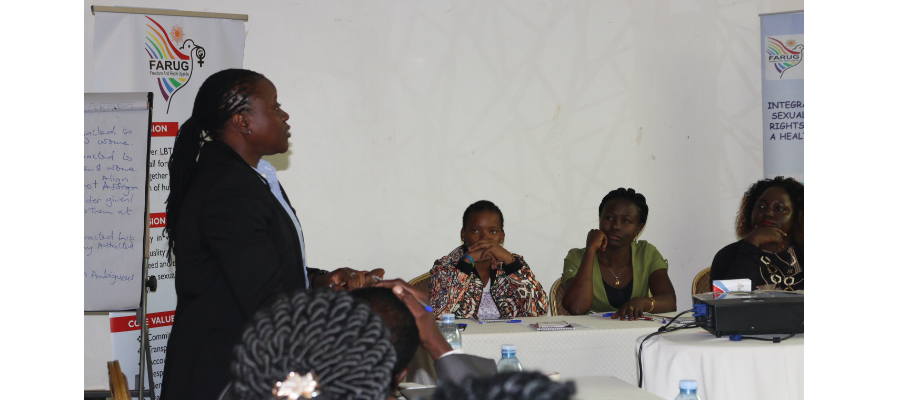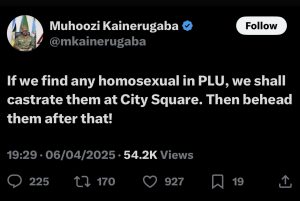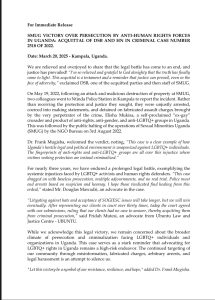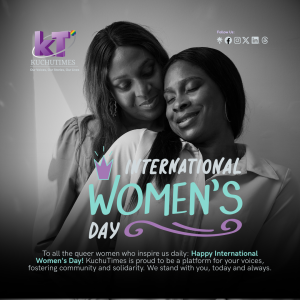With the politicization of sexuality and gender in Uganda, recent research and survey reports show that corrective/curative rape of LBT persons has resulted in LBT people being positioned predominantly as helpless victims. The reports have indicated that the stereotypical cultural and religious norms of many Ugandans have resulted in LBT persons being the primary targets of heteronomative hate crimes within the societies they live. Seeking medical and legal services is also still a problem as they are always blamed for not confirming to the general societal and cultural norms. Apart from the data that was recently gathered by Most at Risk Populations Initiative Mulago (MARPI), there is no information regarding the recognition and availability of health interventions for LBT persons as far as fighting HIV is concerned.
It is upon this background that the health desk at Freedom and Roam Uganda under the Sexual Health and Reproductive Rights project initiated a dialogue aimed at creating awareness, sharing knowledge and information on HIV, TB and Human rights among LBT persons.
The one day dialogue that was held in Kampala on 10th October 2017 brought together religious leaders, local council leaders, lawyers, health service providers, counselors and family members of LBT persons.
The sole purpose of this dialogue was discuss ways of creating a conducive and accessible environment for LBQ persons in accessing health and HIV related services, spiritual and religious reconciliation without discrimination. Family were encouraged to act as a strong pillar of support to LBT persons to prevent the uprising number of school drop outs, job terminations and the rampant drug and substance use in our societies.
Other major reasons for this dialogue were to address gaps that hinder access to sexual reproductive health, HIV/AIDS, and TB prevention, care and treatment information and services among LBT persons and community in Uganda as well as equip religious leaders, local council leaders, health service providers, counselors and family members of LBT persons with a comprehensive understanding about LBT persons and their needs.
Fridah Mutesi a human rights lawyer expounded on the topic from a human rights perspective. She talked about the laws in the country that address about HIV/AIDS and TB as well as the National Health strategic plan. Fridah explained that discriminating people based on their sexual orientation, gender identity or expression is unconstitutional and should be unacceptable.
Other speakers especially from the religious fraternity thanked FARUG for this initiative as it helped them better understand issues concerning sexual minorities that they were previously misinformed about. They clearly stated that the Bible preaches love and not hate and pledged to keep on collaborating with FARUG to pave way to end discrimination based on sexual orientation and gender identity in the church.
FARUG Executive Director Ssenfuka J Warry noted that most LGBTI people are faced with the a difficult coming out process based on the reality that most fami,lies are very misinformed about gender and sexual minorities. She emphasized the need for parents to create time with their children and actually get to know them. Ms. Warry also called upon religious leaders to always preach love not hate saying that all human beings were created in God’s image and that no human has a right to judge another.




